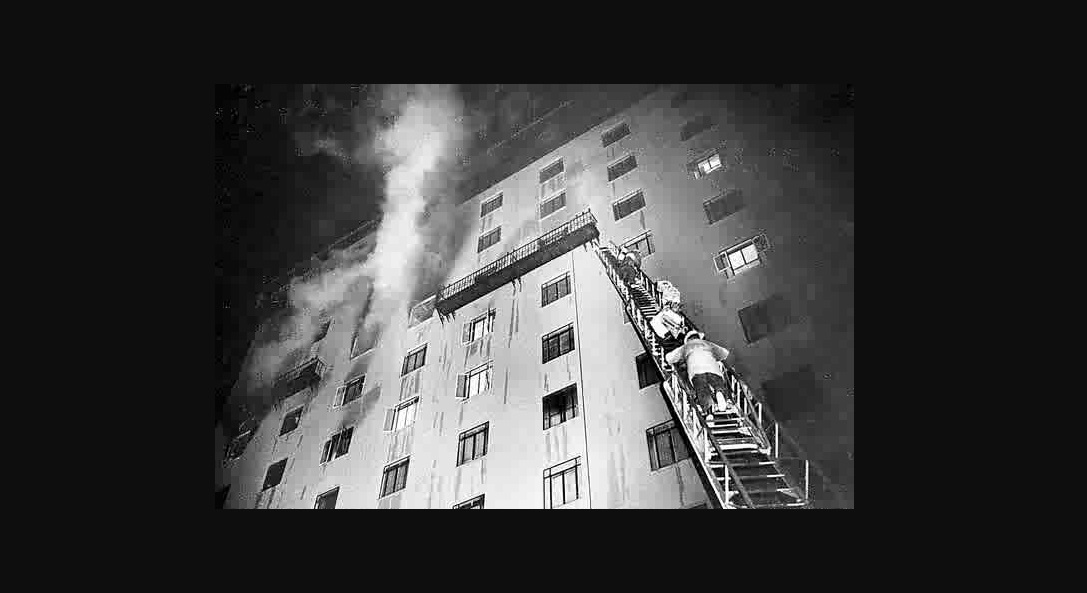(CN) — The Ninth Circuit declined Monday to interfere in a decade-old wrongful arrest and racial discrimination case seeking to expunge the conviction of a man accused of starting a fire that killed 29 people over 50 years ago.
While the court is unsure whether a federal judge can expunge a state conviction, as the plaintiff has requested, the three-judge panel decided the issue would be better served upon a retroactive appeal, rather than a peremptory writ of mandamus.
Louis Taylor sued Pima County in 2015, two years after spending 42 years in an Arizona state prison, claiming the county wrongfully charged him with the 1970 Pioneer Hotel Fire in Tucson, Arizona. The then-16-year-old Black boy was convicted of 28 counts of murder by an all-white jury two years after the fire. No forensic evidence of arson exists.
Taylor was released in 2013 after pleading no contest to the charges, setting aside his 1972 conviction. In 2021, Taylor amended his 2015 complaint to request that the 2013 deal and new conviction be expunged so that he can seek damages for the 42 years spent in prison.
Legal precedent set by Heck v Humphrey bars petitioners from seeking damages from a conviction without showing that the conviction has been overturned.
In a 2021 order denying the county’s motion for summary judgment, U.S. District Judge Rosemary Marquez wrote that she will consider expunging the conviction, which the county argued is unconstitutional before the panel in late March.
The panel decided it isn’t sure, and determined in a 2-1 Monday morning memorandum that the county can bring that issue back to the Ninth Circuit for appeal after trial if that’s how it plays out. The case is scheduled to go to trial on April 22 and could last up to two months.
The county asked the Ninth Circuit to preempt Marquez from expunging the conviction, but the panel decided against it, writing that a writ of mandamus is an “extraordinary remedy” saved for special circumstances of which this case doesn’t fit.
Shipp v Todd established in 1978 that a federal judge can expunge criminal records like arrests and indictments but the panel wrote that the question of a federal judge expunging a criminal conviction has never been properly addressed.
“This is an unusual case, and the jury would have to find that the county engaged in misconduct before the district court would consider granting expungement,” U.S. Circuit Judges Jacqueline Nguyen, a Barack Obama appointee, and Richard Paez, a Bill Clinton appointee, wrote in the majority opinion. “The facts are hotly contested, and if the district court grants declaratory relief, its ruling and the jury’s findings are matters that can be addressed on direct appeal.”
Two factors that decide whether mandamus relief is appropriate — whether alternative means of relief exist and whether the harm is correctable on appeal — fall in favor of Taylor, not the county, the panel wrote.
The county argued in March that moving to trial “based on a lawless remedy” would create a conflict because its lead attorney may be called as a witness. It also reasoned that because the case is so old, more witnesses may be dead by the time an appeal leads to a new trial.
The county's attorneys also say that if the 2013 plea and conviction are expunged, then the 1972 conviction could be reinstated, meaning Taylor could end up out of custody and in possession of a hefty damages award when legally he should be back in prison.
The panel dismissed these arguments as “speculative assertions,” saying that the first two arguments aren’t guaranteed to come to fruition, and the third is another issue that can be appealed later.
Finally, because the petition doesn’t present an “oft-repeated error,” the “drastic remedy” of mandamus relief is not warranted, the panel found.
“As stated, whether Shipp permits a district court to expunge a conviction in extreme and unusual cases has not been decided, and we agree with the county that the case presents an important and novel issue,” it wrote.
U.S. Circuit Judge Patrick Bumatay, a Donald Trump appointee, dissented, writing an opinion of his own in favor of granting mandamus relief to the county.
“For the first time, a district court claims for itself the authority to expunge a state criminal conviction,” he wrote. “This is clearly erroneous.”
He said that while the court must consider all factors of whether to grant mandamus relief, the most important factor is whether the district court clearly erred, which, in his opinion, it did.
“It makes little sense to allow this complex case to continue through trial only to be reversed on appeal,” he wrote.
Neither side replied to requests for comment.
Subscribe to Closing Arguments
Sign up for new weekly newsletter Closing Arguments to get the latest about ongoing trials, major litigation and hot cases and rulings in courthouses around the U.S. and the world.









